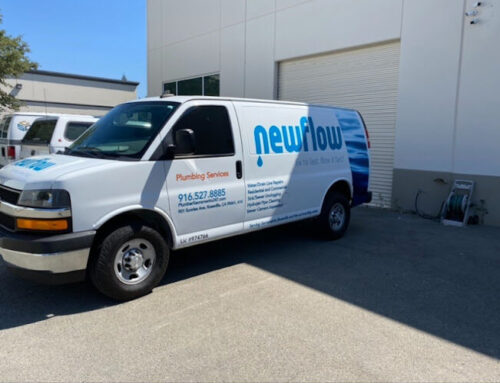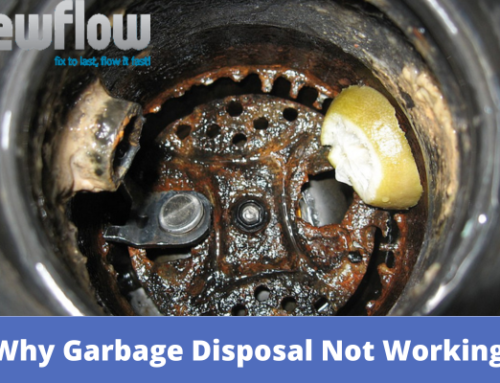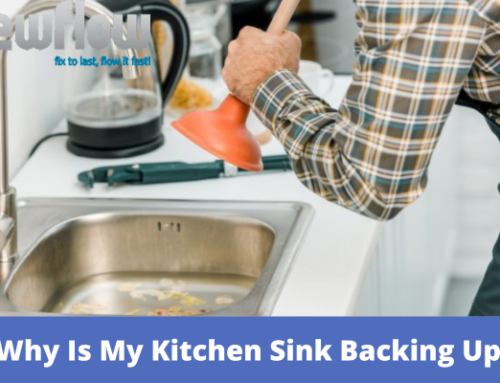A water heater is one of those household appliances we don’t think about—until it stops working. If you’ve been running out of hot water, noticing odd noises, or seeing puddles near your heater, your unit might be on its last legs.
In this guide, we’ll cover five major warning signs that it’s time to replace your water heater, what each issue means, and when to call in a licensed plumber to help. Don’t wait for a total breakdown—knowing the signs now can save you from costly emergency repairs later.
Your Water Heater Is Over 10 Years Old
Age is the number one factor when it comes to water heater failure. Most standard tank-style water heaters last 8 to 12 years. After the 10-year mark, even a well-maintained unit can start having problems like rust, poor heating, and leaks.
How to check the age:
Look for the serial number printed on your water heater’s label. Most manufacturers include the manufacturing date in the code. If you’re unsure, visit the manufacturer’s website or call a plumber to help interpret it.
Tip: If your heater is over 10 years old and you’re having any of the other issues on this list, it’s likely time to replace it rather than repair it.
You Hear Strange Noises from the Tank
Have you started hearing rumbling, banging, or popping sounds from your water heater? That’s a red flag.
Over time, sediment builds up at the bottom of your tank. When the water heats up, the sediment hardens, causing loud noises as it rattles inside the tank. These sounds mean the heater is working harder than it should and could overheat or fail.
What this means:
Too much sediment leads to lower efficiency and more wear and tear. This issue also shortens the lifespan of your water heater.
Rusty or Discolored Water Comes from Faucets
If you’re getting brown, reddish, or rusty water from your hot water taps, your water heater could be rusting from the inside.
This happens when the sacrificial anode rod, which prevents corrosion, wears out. Once it’s gone, the inside of the tank begins to rust, which shows up in your water.
Warning sign:
Rust in hot water is a clear sign that your tank is deteriorating. If left alone, it may start leaking or even burst.
Early-stage fix:
If your water heater is still fairly new (under 5 years), a plumber may be able to replace the anode rod. But if the unit is older, it’s safer and more cost-effective to replace the whole system.
Your Hot Water Runs Out Too Quickly
If your hot water doesn’t last like it used to, or it runs cold within minutes, your water heater might not be working efficiently anymore.
Why does this happen?
Sediment buildup takes up space inside the tank, so it holds less hot water. Older units also lose heating ability over time.
What to consider:
If you’re constantly running out of hot water, and especially if you have a larger family, it might be time to upgrade to a larger tank or switch to a tankless water heater for on-demand hot water.
You See Water Leaking Around the Tank
Water on the floor near your water heater should never be ignored. Puddles or damp spots are usually signs of a cracked tank or faulty internal parts.
Urgency level: High
Leaks can lead to water damage, mold growth, and even complete tank failure. If you see water around the base, turn off your heater immediately and call a plumber right away.
Why leaks happen:
Over time, the constant heating and cooling of the metal tank causes it to expand and contract, eventually leading to small fractures.
Bonus: Should You Choose a Tankless Water Heater?
If it’s time to replace your water heater, you may want to consider going tankless.
Benefits of tankless water heaters:
-
Endless hot water on demand
-
More energy efficient (you only heat water when needed)
-
Longer lifespan (15-20 years)
-
Saves space—no bulky tank needed
While the upfront cost is higher, tankless systems can pay off long-term through energy savings and fewer breakdowns.
Call New Flow Plumbing for Fast Water Heater Help
If your water heater is showing any of these signs—whether it’s leaking, noisy, or just too old—don’t wait for it to fail. New Flow Plumbing is here to help with:
-
Fast diagnostics and inspections
-
Expert repairs and full replacements
-
Tank and tankless water heater installation
-
Honest advice to fit your home and budget
Call us today to schedule an appointment or get a free quote. Our licensed and experienced plumbers are ready to make sure your family stays comfortable with hot water that lasts. And it is time to call in the professionals.
For a new water heater, contact New Flow Plumbing!
New Flow Plumbing is the company to call if you’re having problems with your water heater. Our licensed and experienced plumbers can handle any plumbing problem. We also repair and replace water heaters. Please contact us right away!












